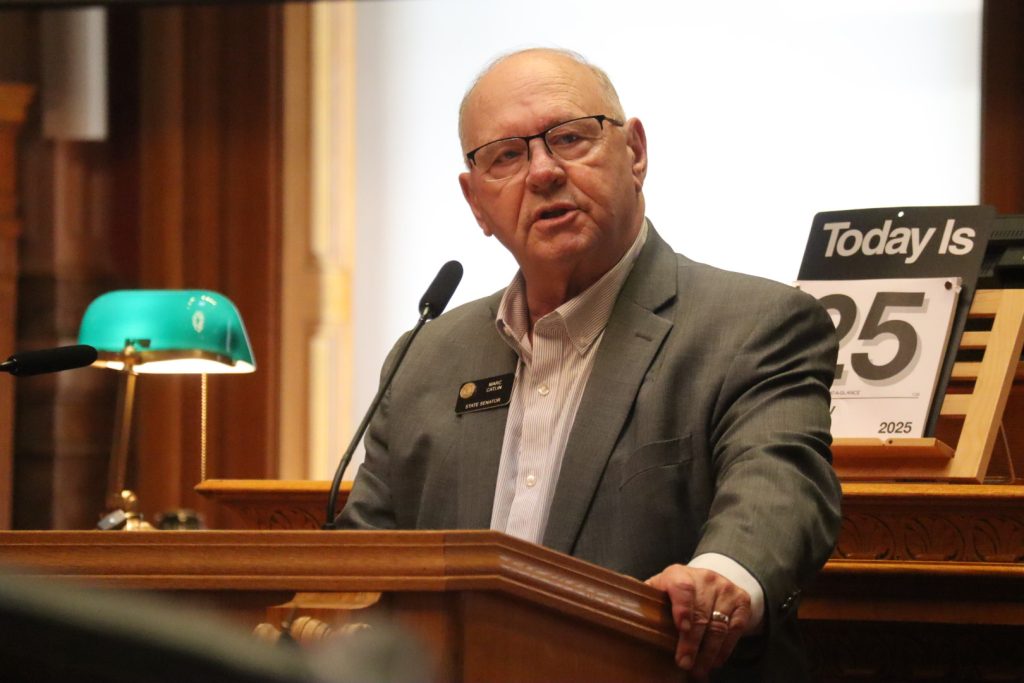To help close budget hole, Colorado Democrats eliminate a tax benefit for small businesses
Some Democrats argue the practice is outdated because most tax collection is automated. Republicans say it will harm small businesses.

Chris Dillmann/Vail Daily
Small businesses in Colorado will no longer be able to recoup a percentage of the sales tax they collect and send to the state under a bill approved by state Democrats in the ongoing special legislative session.
For decades, businesses that report under $1 million in taxable sales per filing period have been able to recoup 4% of their tax collection, or up to $1,000 per retailer, in what is known as a “vendor fee.” Businesses are able to collect that money per filing period, which is usually monthly, meaning they can keep up to $12,000 per year in sales tax.
The practice is meant to help businesses cover the cost of calculating and remitting sales tax revenue for the state.
By eliminating the vendor fee, Democrats plan to use that extra revenue to help plug a roughly $783 million hole in the state’s current fiscal year budget. The deficit was caused by H.R. 1, congressional Republicans’ and President Donald Trump’s sweeping tax and spending-cut law, which they dubbed the “big, beautiful bill.”
A fiscal analysis by the nonpartisan Legislative Council Staff projects that eliminating the vendor fee would give the state $27.6 million in additional sales tax revenue this fiscal year and $56.8 million more in 2026-27.
Democrats argue that the vendor fee is antiquated since most sales tax collection is automated. Their bill, House Bill 5, would end the fee in January.
“Because we are having to deal with the budget crisis that we are in right now, every million (dollars), or tens of millions that we can find right now is important,” said Rep. Karen McCormick, D-Longmont, speaking from the House floor.
McCormick is a lead sponsor of the measure alongside Rep. Steven Woodrow, D-Denver, and Sens. Cathy Kipp, D-Fort Collins, and Faith Winter, D-Westminster.
McCormick, who owned a small veterinary clinic in Boulder for 16 years, said she is “intimately familiar” with the vendor fee, which was created in the 1930s when there was a “higher burden on small businesses” to calculate and remit their sales tax to the state.
But in today’s era of “digital transaction and online filing and tax prep software, remitting the sales tax is much faster, simpler and cheaper than it was back in the day,” McCormick said.
Eliminating the state’s vendor fee is one of several ways Democrats are using the special session to bolster tax revenue to close the budget gap.
Other bills are aimed at tax changes for larger corporations and high earners. They include measures to crack down on tax havens for corporations, eliminate a tax benefit for insurance companies with regional offices in Colorado, and allow certain large companies to prepay taxes early at a discount.
Taken together, Democrats believe they’ll be able to raise around $250 million in additional tax revenue to help close the budget gap. Lawmakers are also planning to dip into the state’s reserves and empower the governor to implement spending cuts to make up the rest of the difference.
Republicans lambasted the measures, including the bill to eliminate the vendor fee, which they argue will burden small businesses that are already dealing with rising costs, tight margins and excessive regulations.
Several pointed to a study last year commissioned by the Colorado Chamber of Commerce that identified Colorado as the sixth most regulated state in the nation for businesses.

Sen. Marc Caitlin, R-Montrose, said the sales taxes that businesses are allowed to keep under the vendor fee are “not very much.” He said the practice is about more than money and represents a partnership between the state and the small business community.
“These businesses are doing the work for the state to bring those dollars into the state so that we continue to function,” Caitlin said during debate on the Senate floor. “We depend upon those small businesses in the state of Colorado. We’ve been in a good partnership, up until now.”
Amid unified Republican opposition, not all Democrats voted for the measure, which won narrow approval in the House and Senate.
Sen. Dylan Roberts, D-Frisco, was among five Senate Democrats on Monday who voted against the bill, which passed the Senate by a single vote.
“I know that most small businesses are using automated systems, but it’s still time and effort and staff hours that they have to use to do that paperwork and do that compliance,” Roberts said. “When you’re a small business, particularly with just a few employees, every dollar makes a difference.”
That’s especially true, he said, for rural resort areas like the ones he represents.
“A lot of small businesses in our rural resort communities are operating on the margins,” Roberts said. “I was voting for my district and not with my party, and I’ll keep doing that. I look at every bill individually.”
The measure now heads to Gov. Jared Polis, who is expected to sign it alongside the other tax bills.
Voters to decide future of four Aspen School District funding questions
Local constituents will decide the fate of four ballot issues pertaining to Aspen School District funding in the Nov. 4 election.










